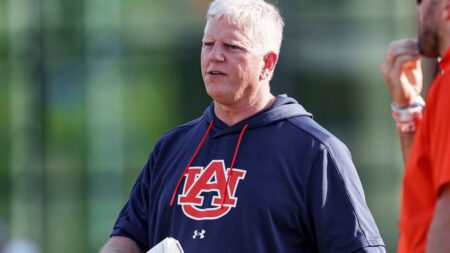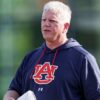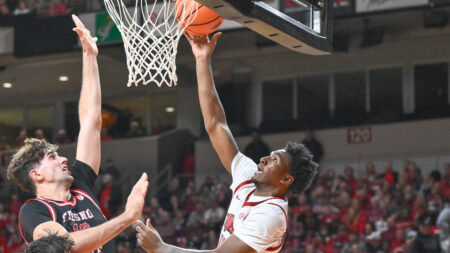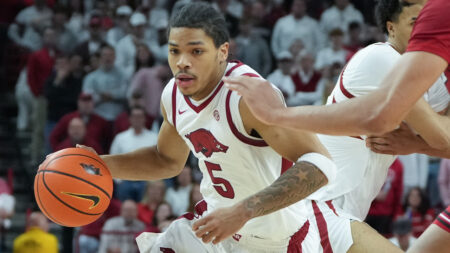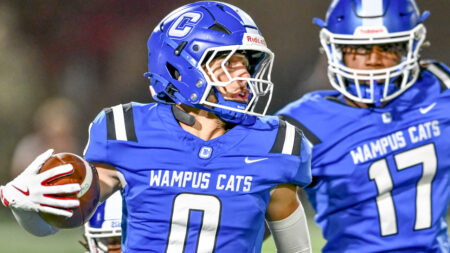Hog Hoops
Calipari sharply critiques transfer trend; urges keeping NCAA tournament intact
Hogs’ coach reiterated his resistance to transactional transfers, called to preserve NCAA Tournament format unchanged at SEC Media Day
FAYETTEVILLE, Ark. — Arkansas coach John Calipari delivered a pointed critique of the current transfer portal environment and a measured but firm resistance to proposals for expanding the NCAA Tournament.
He made his feelings pretty clear at the SEC Media Day annual basketball media gathering in Birmingham, Ala.
In his second season leading the Razorbacks, Calipari framed his approach around protecting players’ stability, preserving tournament integrity, and rejecting transactional dynamics.
He reflected on both his first year’s volatile path and broader structural trends in college basketball.
Portal friction and philosophical boundaries
Calipari made it clear early that he does not intend to treat roster building as a purely transactional process.
“If I become transactional, I’m going to pay you this to do this and that, then I won’t do this anymore,” he said. “That’s why, if someone put their name in the portal, I said, ‘You’re not coming back,’ because it’s not going to be transactional.” he said.
He called for limiting multiple transfers, arguing that four stops in four years undermines both academic progress and team cohesion.
“You just can’t transfer four times,” he said. “That last place you’ll be, they’ll really be loyal to you.” Calipari said.
He proposed a policy allowing one penalty-free transfer but requiring a sit-out year for subsequent moves.
“They should be able to transfer once without penalty,” Calipari said. “After that you can transfer, just you have to sit out.”
His reasoning stems partly from concern that constant movement erodes developmental continuity and academic advancement.
“You’ll never have a college degree,” he warned, adding that he sees the need to restrict excessive mobility for both athletic and educational reasons.
Other coaches echo similar tension over portability.
Former Arkansas football coach Sam Pittman, speaking at SEC Media Days, called financial offers a principal driver of transfers and emphasized that coaching responsibility has expanded into guiding young players through ever-shifting contracts.
Tournament expansion? Leave it alone
A prominent flashpoint during Calipari’s remarks came when he addressed proposals to expand the NCAA Tournament from 68 to 76 teams.
According to multiple reports, that expansion could begin as early as 2026–27.
Calipari voiced strong opposition.
“I just think you leave it how it is,” he said. “Leave that unknown alone.”
He questioned potential side effects.
“We don’t know what will happen,” Calipari said. “It could be two. It may be NIL has killed all the mid-major schools. None of the kids are staying in (mid-major schools), but I would leave the tournament alone.”
In his view, tampering with a storied format risks unintended consequences.
He urged caution before altering what has worked and suggested that expansion proposals be shelved unless more evidence supports change.
Razorbacks’ evolving roster
Calipari enters Year 2 with a returning core and some new infusion. He’ll bring back key contributors DJ Wagner, Trevon Brazile, Karter Knox and Billy Richmond from last season.
To complement them, Arkansas added two McDonald’s All-American guards—Darius Acuff and Meleek Thomas—and in-state forward Isaiah Sealy.
From the portal, veteran bigs Malique Ewin and Nick Pringle joined the roster as experienced options in the frontcourt.
Last season, Calipari engineered a late push after a 0–5 start in SEC play, finishing 8–5 in the final 13 and reaching the Sweet 16 with upset wins over Kansas and St. John’s before falling in overtime to Texas Tech.
One notable departure was point guard Boogie Fland who entered the transfer portal as he geared up for the NBA, rendering his status uncertain going forward.
A coach’s longer view
Calipari’s approach blends guardrails with flexibility. He voiced willingness to allow movement but to impose limits where he sees systemic harm.
“You can transfer,” he said. “But you have to sit out.”
His larger concern is whether college basketball becomes fundamentally transactional. On OutKick, he warned the day might come when “if it’s transactional versus transformational, why would I do it?”
At SEC Media Day, he also expressed frustration, framing his stance as a kind of boundary-setting. Reports suggest he threatened to walk away from the sport if pathologies he views as systemic aren’t checked.
Yet despite tension with contemporary norms, he remains committed to the Razorbacks program.
He guided Arkansas to a momentous 89–79 win over Kentucky earlier in the season, his return to Rupp Arena drawing boos and cheers but ending in a signature victory.
As he seeks to shape roster culture and institutional philosophy, Calipari’s second season will test how well limits and flexibility can coexist in an era of relentless change.
Key takeaways
-
Calipari insists he won’t adopt a purely transactional approach to transfers; he supports one penalty-free move and limits on repeat portals.
-
He opposes NCAA Tournament expansion, arguing it could damage mid-major programs and unsettle a format that “isn’t broken.”
-
Arkansas returns core contributors while adding new talent; the program faces pressure to balance development with retention.




